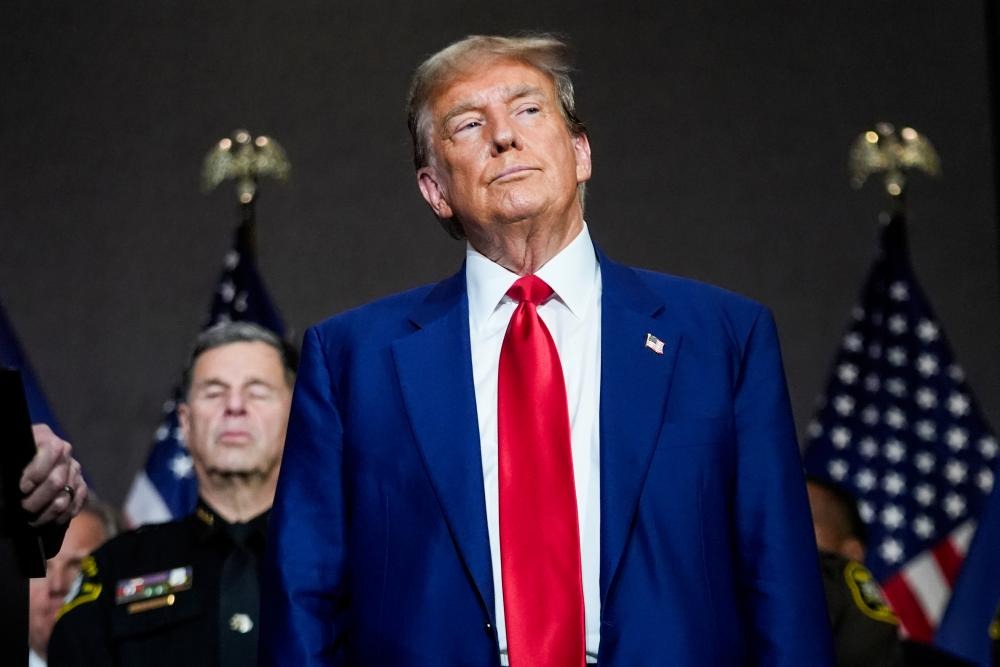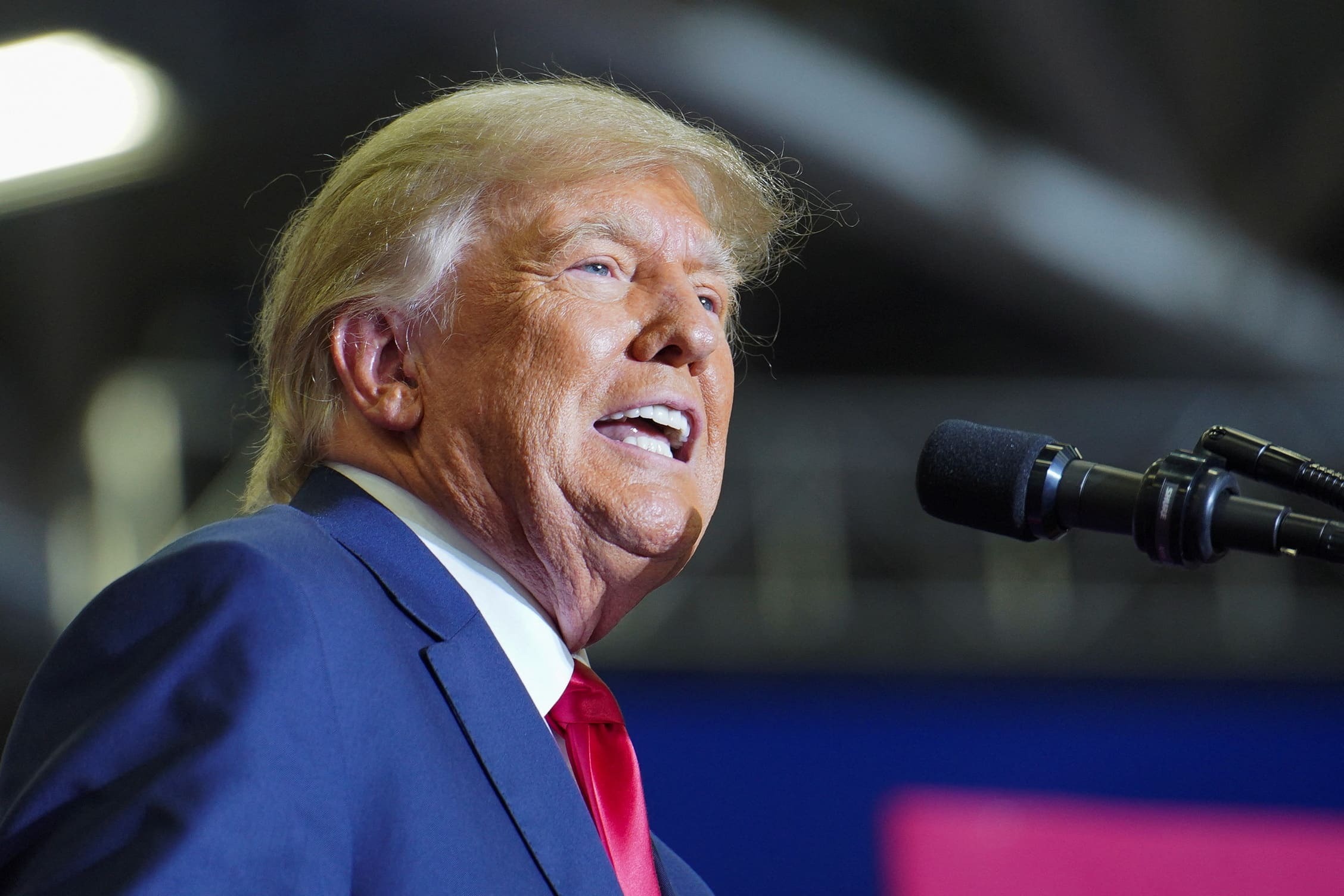The jury selection process for former President Donald Trump’s criminal trial in Manhattan faced setbacks on Thursday, as two jurors were dismissed, reducing the number of seated jurors to five.
One juror expressed doubts about her ability to remain fair and impartial after facing outside influences, while another was dismissed over concerns that he may not have been truthful about his past involvement with the law.

Donald J Trump (Credits: Yahoo News Singapore)
The dismissal of the jurors adds to the challenges of selecting a jury for such a high-profile case, where biases and impartiality are scrutinized closely. Despite efforts to find jurors without prior knowledge of Trump, the inherent difficulties in selecting impartial jurors for such a landmark trial are evident.
The judge’s decision to bar journalists from reporting prospective jurors’ current and former employers reflects concerns over potential intimidation and interference from the press. This decision followed the dismissal of a juror who expressed fear and intimidation due to media attention surrounding the trial.
Meanwhile, prosecutors sought contempt sanctions against Trump for violating court orders with his social media posts. Trump’s posts, which included criticism of a key witness and claims of liberal activists infiltrating the jury, prompted the prosecution to request fines and further sanctions against him.

Donald Trump (Credits: FOX16.com)
The trial centers on allegations that Trump obscured the true nature of payments made to porn actor Stormy Daniels before the 2016 election.
Prosecutors argue that Trump’s company reimbursed his former lawyer, Michael Cohen, for the payments, which were intended to prevent Daniels from disclosing her alleged sexual encounter with Trump. Trump denies the allegations and maintains that the payments were legitimate legal expenses.
As the trial progresses, the challenges of jury selection and the ongoing legal battles over Trump’s social media activity underscore the complex nature of this landmark case.























